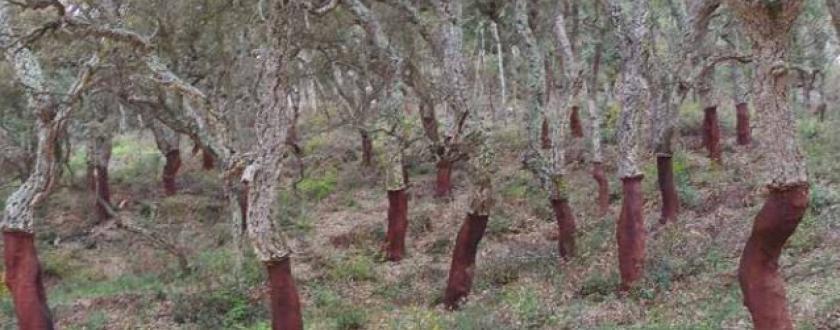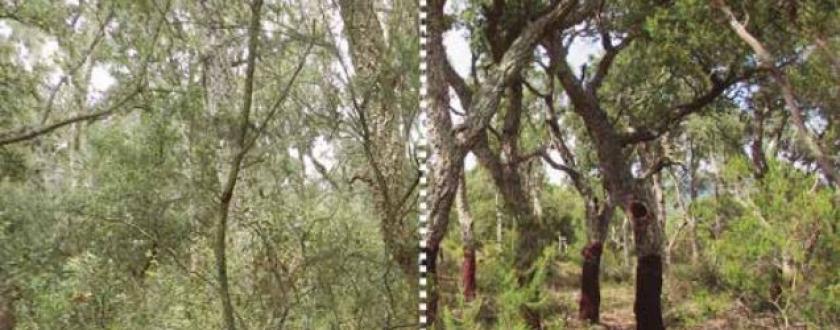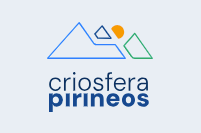Life+ SUBER. Climate change adaptation measures in Quercus suber management
Description of the case study
Cork oak (Quercus suber) groves are unique ecosystems which are sensitive to the effects of climate change. The Life+ SUBER project has been launched to conserve examples of these ecosystems at the Mediterranean end of the Pyrenees.
In addition to gaining knowledge on the vulnerability of these formations, the project aims to improve forest management to make these areas more resilient and improve their productivity and economic viability.
The main challenge facing this ambitious project is to maintain the current functions of cork oak groves and the associated value chain. It will do this by implementing new forest management techniques which generate forests capable of withstanding a future with more arid, frequent and intense disturbances. The project’s proposed “forestry for adaptation” requires active intervention by forest managers and owners.
The project objectives are as follows:
- Increase the resistance and resilience of cork oak formations to climate change.
- Maintain and strengthen the Mediterranean cork oak value chain to ensure its economic viability into the future.
- Involve forest managers and owners in innovative forest management based on “forestry for adaptation”.
The project is being implemented on five private estates over a total surface area of 27.6 ha in Alt Empordá (the municipalities of Dargus, Agullana and Capmany) in the Catalan Pyrenees.
The Life+ SUBER project is implementing “forestry for adaptation” actions across different cork oak formations in Catalonia:
- Implementation of innovative management models to improve the vitality of cork oak groves and cork production in 16 stands (64 ha).
- New landscape-scale techniques for preventing large forest fires in 8 stands (32 ha).
- Restoration of degraded cork oak groves in 4 stands (12 ha).
- Actions to improve habitat quality and biodiversity conservation as a cross-cutting adaptation measures in all stands.
- Real scale biorational control of Coraebus undatus infestation in 15 stands (120 ha).
- Creation of management tools for integrating this climate change adaptation approach into forestry policy and regulation for the cork industry in Catalonia (three vulnerability models, one memorandum of regulations to be modified, one guide with technical recommendations for climate change adaptation).
- Project communication (website, GIS app, technical conferences).
Case study developed and implemented as a climate change adaptation measure.
Consorci Forestal de Catalunya, Centre Tecnològic Forestal de Catalunya, Forestal Catalana S.A., Amorim Florestal S.A. (Portugal), Centre de la Propietat Forestal, Barcelona Council, Institut Català del Suro.
Additional Information
The partners behind this project are the Consorci Forestal de Catalunya, Centre Tecnològic Forestal de Catalunya, Forestal Catalana S.A., Amorim Florestal S.A. (Portugal), Centre de la Propietat Forestal, Barcelona Council and the Institut Català del Suro. The partners are also working closely with the owners of the sample stands.
Success: high spatial reach (228 ha) and stakeholder engagement (350); generation of useful tools for transferring knowledge nationally; public administrations and forest owners are among the project partners; support for the cork sector value chain.
Limiting: lack of implementation of adaptation measures in forestry policy and planning; the cork sector is weaker across Europe; results of pilot adaptation measures require long term analysis.
The project has a total budget of €1,097,039. The EU LIFE+ Programme has provided €547,337 and the rest has been funded by Barcelona Council and the Institut Català del Suro (both project partners).
The project is part of the European Commission’s LIFE+ grants programme and contributes to objectives around the conservation of priority EU habitats and to adaptation of terrestrial ecosystems to climate change.
2014-2018 (4 years - in progress)
Reference information
PYRENEAN CLIMATE CHANGE OBSERVATORY
Avenida Nuestra Señora de la Victoria, 8
22.700 - Jaca
Huesca - España
+34 974 36 31 00
info_opcc@ctp.org






